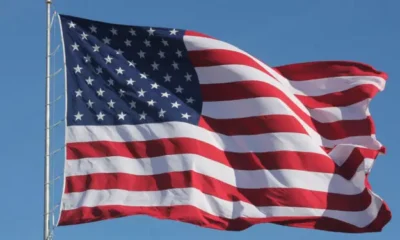Features
Just In: Oxford dictionary adds COVID-19, self-isolation as new English words [See full list]

The Oxford English Dictionary has been updated with new words relating to the deadly coronavirus pandemic in its April edition.
Onyxnews Nigeria gathered that additions were also made in the dictionary’s sub-entries and unrevised entries.
The new words added include: COVID-19, infodemic, R0, self-isolate, self-isolated, self-isolating, self-isolation, self-quarantine, self-quarantined, shelter in place, social distancing, and social isolation.
The dictionary also added “to flatten the curve” in its new entries.
“PPE” and “social recession” were updated in the dictionary’s sub-entries while “elbow bump” and “WFH” – working (or work) from home – were included in its unrevised entries.
According to Punch, Oxford English Dictionary website listed 20 keywords searched during the deadly coronavirus pandemic from January to March.

In January and February, some of the keywords related to coronavirus; others referred to other world events such as the Australian bushfires, the assassination of Qasem Soleimani, Donald Trump’s impeachment and acquittal, the Democratic caucuses, locust swarms in East Africa, investigations into the Astros sign-stealing scandal, and more.
However, last month, every one of the top twenty keywords was in some way related to coronavirus.
In January, the words mainly relate to naming and describing the virus: coronavirus, SARS, virus, human-to-human, respiratory, and flu-like.
By March the keywords reflect the social impact of the virus, and issues surrounding the medical response.
Among the words listed are social distancing, self-isolation, and self-quarantine, lockdown, non-essential (as in non-essential travel), and postpone are all especially frequent, as are PPE and ventilator.
Others are COVID-19, pandemic, distancing, coronavirus, self-isolate, sanitiser, quarantine, virus, outbreak, corona, postpone, disinfect, and isolation.
OED Executive Editor, Bernadette Paton, said the origin of the words were gotten through news and social media, adding that the words have been in use for many years but became common these days due to the condition the world is in now.
“Some of the terms with which we have become so familiar over the past few weeks through the news, social media, and government briefings and edicts have been around for years (many date from the nineteenth century), but they have achieved new and much wider usage to describe the situation in which we currently find ourselves,” Paton said.
-

 Headline1 week ago
Headline1 week agoD’Tigress Edge Mali To Win Fifth Consecutive AfroBasket 2024 Title— Highlights Of The Showdown
-

 Headline4 days ago
Headline4 days agoBREAKING: Former Presidential Candidate, Sowore Regains Freedom
-

 Headline1 week ago
Headline1 week agoJUST IN: Thomas Partey’s Bail Conditions Confirmed
-

 Brands and Marketing5 days ago
Brands and Marketing5 days agoUPDATED: Naira Rises Against Dollar In Foreign Market— See New Exchange Rate
-

 News1 week ago
News1 week agoWAEC: 2025 WASSCE Released
-

 Entertainment4 days ago
Entertainment4 days agoJUST IN: WAEC Revises SSCE Results Errors, Announces New English, Maths Pass Rate
-

 Headline4 days ago
Headline4 days ago9mobile Unveils New Identity, Targets Stronger Digital Presence
-

 Headline1 week ago
Headline1 week agoSkip Classes, Lose Your Visa’ – US Govt Warns International Students
-

 Headline5 days ago
Headline5 days agoBallon d’Or 2025: Organizers Release Names Of Nominees [Full List]
-

 Entertainment2 days ago
Entertainment2 days agoUPDATED: Asake, Burna Boy, Rema, Wizkid, Tyla Lead Afrobeats Charge At 2025 MTV VMAs











